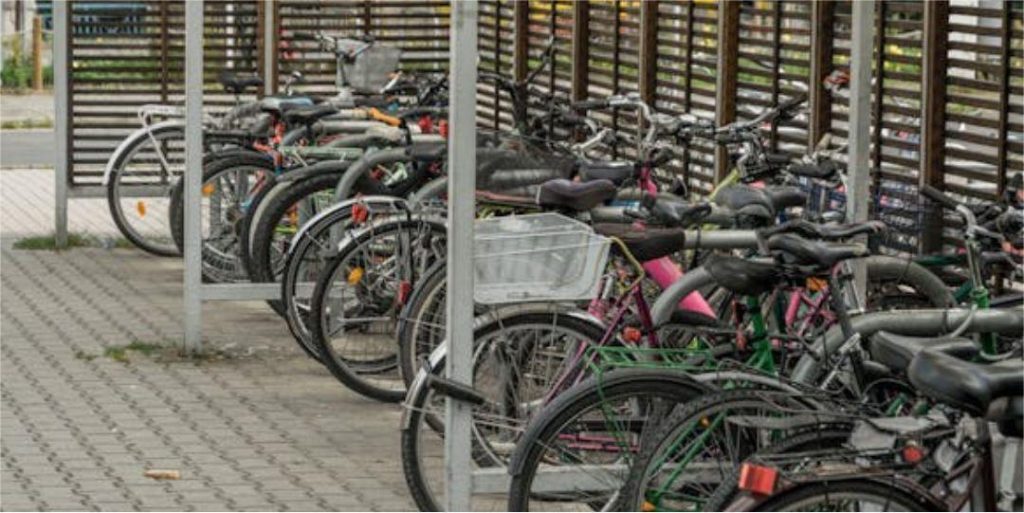Climate Resilient Schools
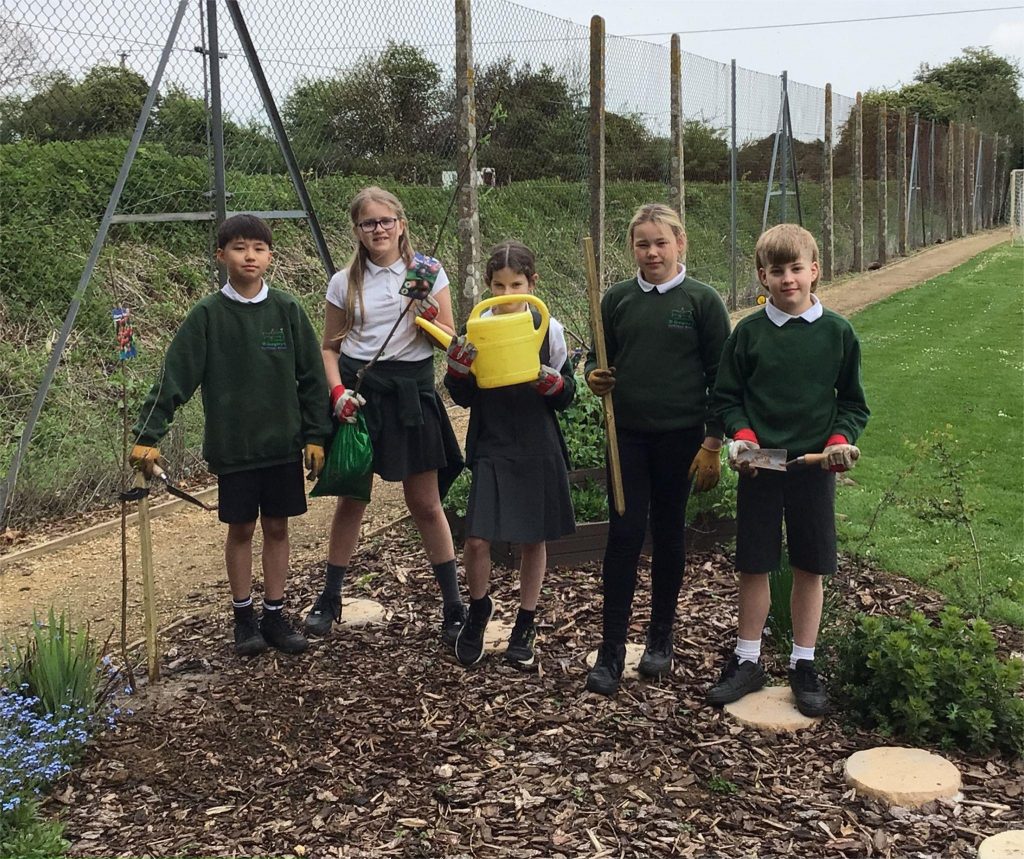
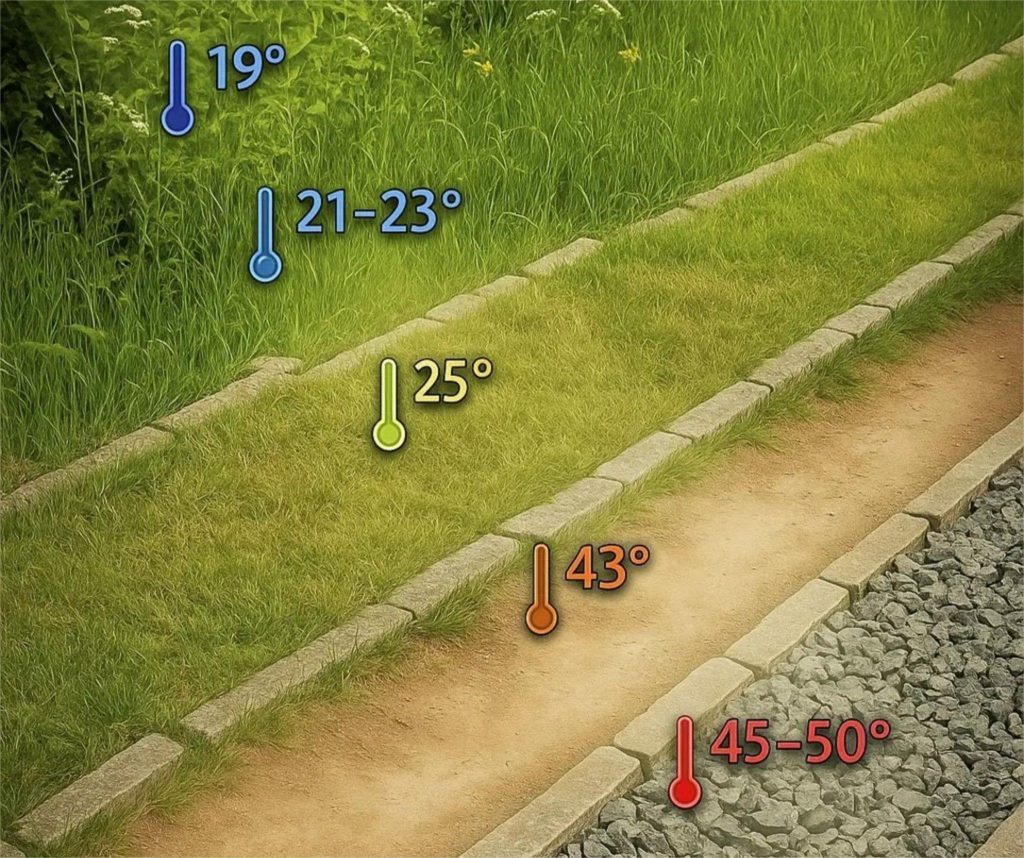

In the coming decades, climate change will cause a wide range of issues that will directly affect schools and local communities including more frequent and widespread flooding, scarcity of water
resources, and increased risks associated with heat rises in the summer.
With state-funded school budgets having been squeezed year on year for over a decade, many schools face significant
challenges in taking action to protect themselves. Add to this the lack of specialist environmental knowledge in some schools, plus ageing buildings and skills barriers, and it’s easy to see why so
many need support.
Little Green Change’s Climate Resilient Schools project helps state-funded schools to adapt and plan for the future using our expertise and knowledge. We work directly with children to enable them to lead by example and to make Little Green Changes that make a BIG difference, showcasing and amplifying these achievements to create a sense of pride and purpose.
There are school-aged children in approximately 42% of all UK households. By engaging with, inspiring and empowering children to learn about, and help implement, climate change adaption changes at school, we can also inspire progress right across communities. Change in schools is
already helping whole families, as well as school staff, see the many benefits of thinking and acting more sustainably.
This project offers participating schools:
If you are a school in West Dorset and you are interested in taking part in our free Climate Resilient Schools project, funded by Dorset Council, contact us.
Is your school based outside of West Dorset? Don't worry. We have some climate resilient school tips below to help get you started.
Case study: Sticklands Primary School, Dorset:
Following the completion of their climate resilient schools assembly and audit, the following items were provided to Sticklands Primary School through this project:
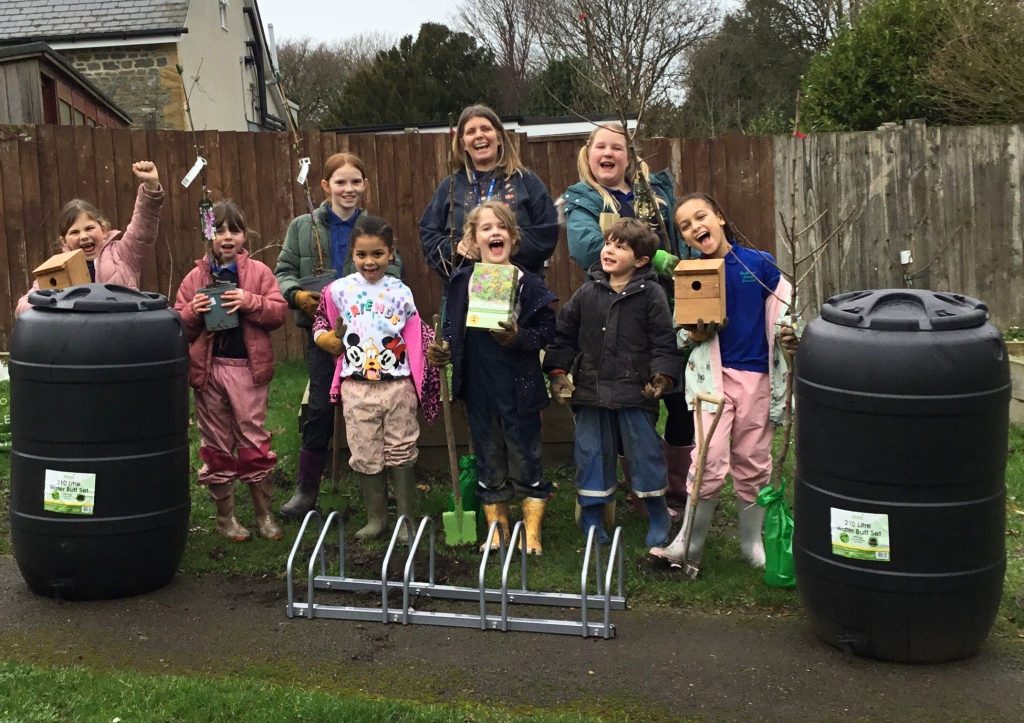
Feedback from Sticklands Primary School.
"We are very grateful for our new items! We have a SuDS team coming in to install some new surfaces and planting areas in school, so as soon as that is complete we will be installing our lovely new items from Little Green Change. Thank you!"
Did the children enjoy taking part in Little Green Change's Climate Resilient Schools Project audit? "Yes."
Did the children learn anything new? "Yes."
Would you recommend Little Green Change's free Climate Resilient Schools Project to another state-funded school? "Yes."
Are you likely to use the services of Little Green Change again in the future? "Yes."
Katherine Will, Teacher and Deputy DSL
Sticklands Primary School, Dorset.
"We are very grateful for our new items! We have a SuDS team coming in to install some new surfaces and planting areas in school, so as soon as that is complete we will be installing our lovely new items from Little Green Change. Thank you!"
Did the children enjoy taking part in Little Green Change's Climate Resilient Schools Project audit? "Yes."
Did the children learn anything new? "Yes."
Would you recommend Little Green Change's free Climate Resilient Schools Project to another state-funded school? "Yes."
Are you likely to use the services of Little Green Change again in the future? "Yes."
Katherine Will, Teacher and Deputy DSL
Sticklands Primary School, Dorset.
This project supports UN Sustainable Development Goals 3, 4, 6, 11, 12, 13, 14, 15 and 17; as well as the UK Department for Education’s sustainability and climate change strategy, announced in 2023.
Climate resilient school tips include:
1) Increase shading.
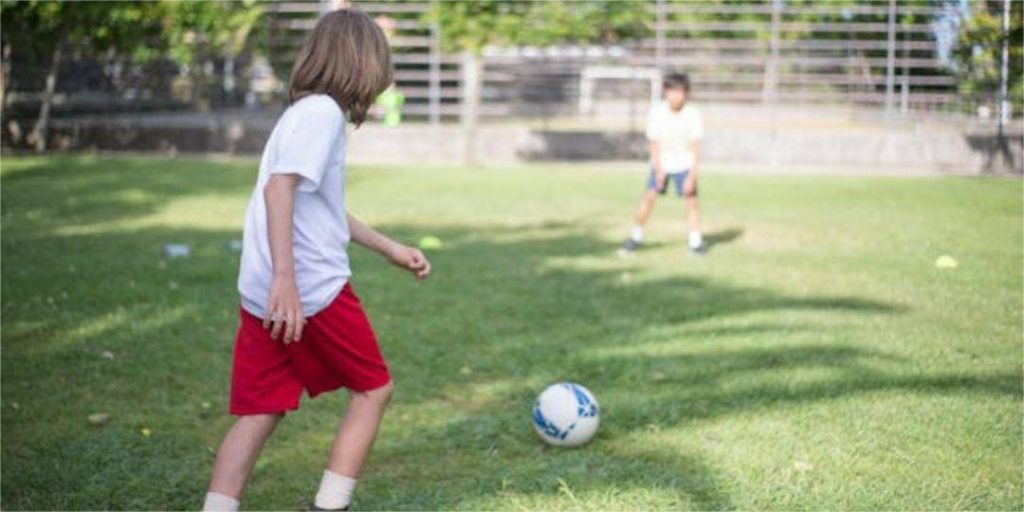
Effective ways to control outdoor temperatures in schools include replacing hard surfaces like tarmac, concrete and paving with plants, grasses, water features and natural materials that trap less heat.
Planting native trees that are suitable for your site, and installing other shade structures like awnings, canopies and sail shades can also help to control outdoor temperatures in schools, and provide places for children, staff and parents to shelter from the hot, summer sun.
2) Conserve mains tap water.

Whilst climate change will lead to more intense rainfall during some seasons, it is also expected to cause more frequent drought periods, which combined with higher temperatures and projected population growth, will put the UK's water supply under increasing pressure and lead to water scarcity. To help, schools can reduce their reliance on the mains water supply by addressing leaks and installing water efficient fitting in schools. For example, tap restrictors, urinal sensors, and converting single-flush to dual-flush.
3) Collect and use rainwater.
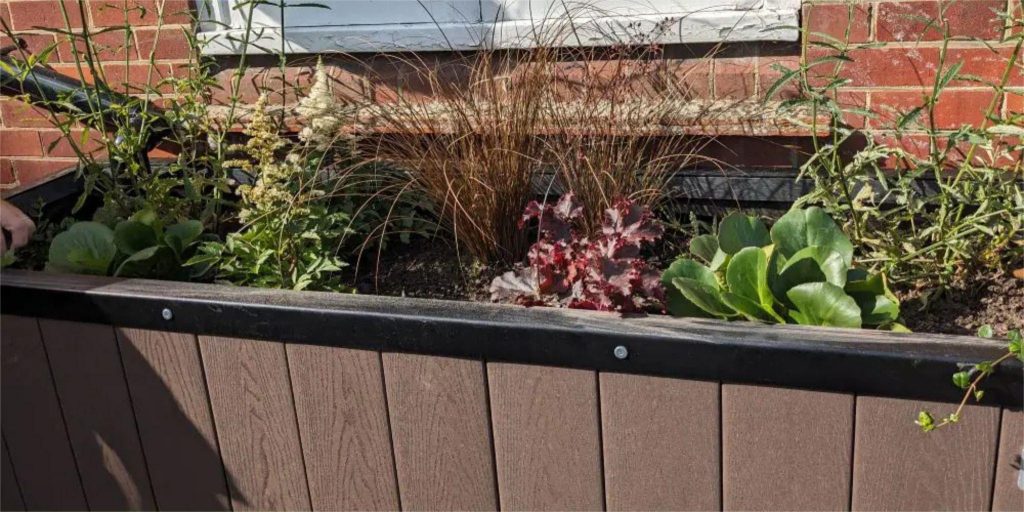
Sustainable drainage systems (SuDS) help to reduce flood risks by capturing rainwater from roofs and storing some of this water to slow its flow into the sewer system, while also watering plants that can help increase biodiversity and/or produce food. Educational benefits include learning about biodiversity, water responsibility, and plant life cycles.
Traditional water butts are a cost effective way of capturing rainwater for use on your grounds, including for watering plants.
4) Plant willow in flood prone areas.
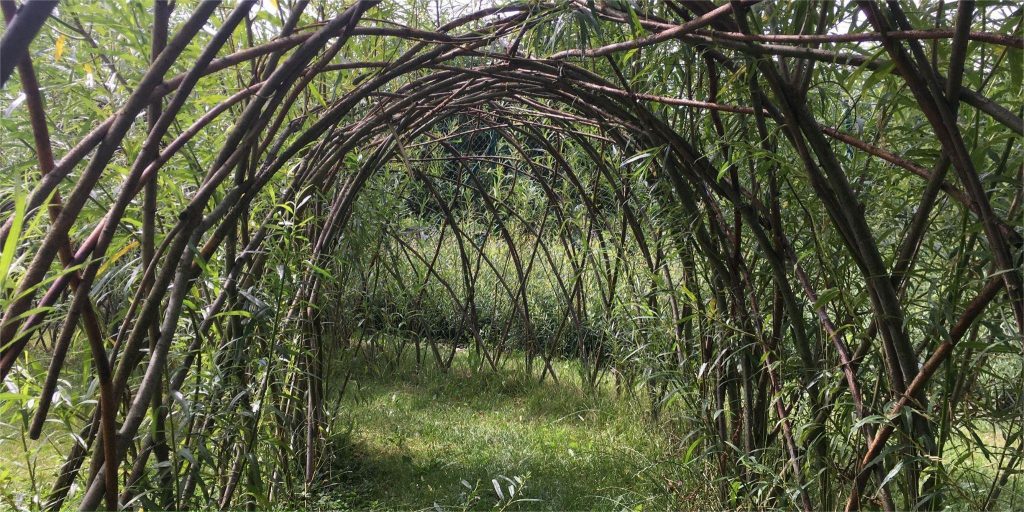
Native British willow species of the genus Salix can be grown in a range of conditions, including on areas that suffer occasional flooding and in poor soils. If your school has areas which temporarily flood each year, or do not drain quickly during periods of high rainfall, this could be a great option for you. Willow is NOT suitable for areas that are permanently flooded.
Willow can be grown as individual trees, a hedge, or they can be planted and trained to create a living structure or tunnel, which can add an extra play opportunity for children.
Established willow is also great for creating shaded areas.
6) Promote behaviour change.

Raising awareness of climate change and the actions we can take at school and at home, such as reducing water and energy usage, and helping nature, is really important.
Reducing our greenhouse gas emissions
will reduce future climate change. This
is sometimes called climate change
mitigation. Ways we can personally help to reduce greenhouse gas emissions include walking and cycling instead of going by car, and eating less meat to reduce the amount of methane that is produced by the animals humans eat.
Little Green Change's assembly is a great way of educating children about this topic.
Thank you to Dorset Council for funding our Climate Resilient Schools project in West Dorset, England, from September 2025-March 2026.


Awards
We're proud to have won the Green StartUp of the Year Award at the UK StartUp Awards 2025 South-West, the Green/Eco Business of the Year Award at the Jurassic Business Awards 2024, the Green/Eco Award at the West Dorset Gold Business Awards 2024, a Judges' Choice award at the UK StartUp Awards 2024 South-West, and a Sustainable Business Award 2024 from Litter Free Dorset. Our Founder and Director, Clare, won a BBC Devon Make a Difference Award (Green Award category) in 2024 for her work founding and leading Little Green Change. We were also finalists at the The Small Awards 2024, and The Good Small Business Awards 2024.






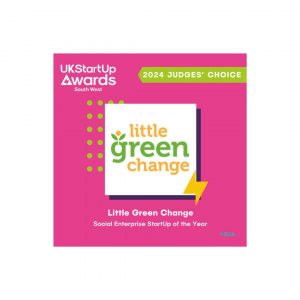




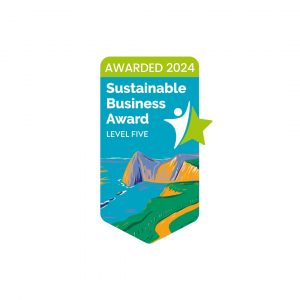
We're accredited members of Social Enterprise UK, and Dorset Climate Action Network


